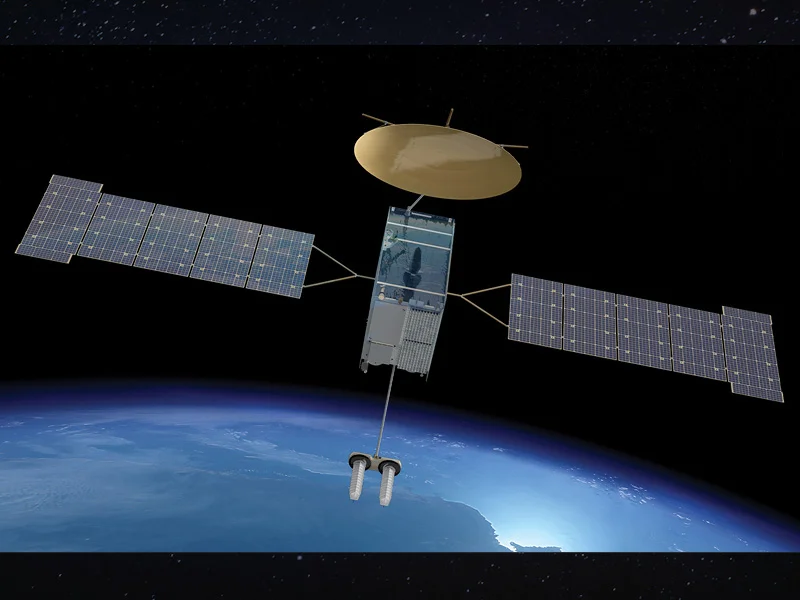US defence giant Lockheed Martin has fought off Airbus, Boeing and Optus to secure a lucrative contract to deliver Australia’s first “sovereign-controlled” military satellite communication constellation.
The Department of Defence on Monday revealed Lockheed Martin as the preferred prime contractor for the JP9102 Australia Defence Satellite Communication system following a two-year procurement process.
Lockheed Martin will now progress to the next stage of the tender, which will involve engaging in “collaborative tender clarification and improvement activities”, according to the department.
Other bidders on the JP9102 project included Optus, which was leading a joint bid with Raytheon Australia and Thales Australia, as well as Airbus, Boeing and Northrop Grumman.

Estimated at up to $3 billion over its life, the contract will see Lockheed Martin deliver a new constellation of Defence-controlled and operated geo-stationary communications satellites, dubbed MILSATCOM.
It will be supported by multiple ground stations, an Integrated Satellite Communications Management System, and two new new satellite communications operations centres.
The satellite constellation will eventually replace Defence’s existing satellite communication system, which is currently supported by Optus’ C1 satellite and another operated by Inmarsat. Optus, which has flown the C1 satellite since 2003, was handed a $405 million deal last year to support Defence until 2034.
Air Defence and Space Systems Division head Air Vice-Marshal David Scheul said the multi-billion dollar project will deliver Australia’s “first sovereign-controlled satellite communication system over the Indo-Pacific region”.
“Once delivered, the new system will increase the resilience, agility and flexibility of Defence’s military satellite capability,” he said, adding that “89 capabilities” across Defence currently rely on satellite communications.
Lockheed Martin A/NZ chief executive Warren McDonald said the company was proud to be selected as the preferred bidder of the satellite system that will “provide the Australian Defence Force with robust connectivity and reliable information when and where they need it”.
Having amassed an extensive consortium of partners to secure the JP9102 project, Mr McDonald said a “significant amount of the content” for the solution will be provided by Australian small to medium enterprises.
Lockheed Martin will work with Inovor Technologuies, EM Solutions, AV-Comm, Linfox, Shoal Group, Ronson Gears, Calytrix Technologies, Conscia, Clearbox Systems, DXC and Blacktree Technology to deliver the ground and control components for JP9102.
The company is also planning to expand its presence in Victoria as a result of the contract, by establishing an engineering and technical hub that will create more than 200 advanced space industry jobs.
The JP9102 deal is Lockheed Martin’s second multi-billion dollar deal since last September, when it secured a 19-year contract to deliver Australia’s Southern Positioning Augmentation Network (SouthPAN).
SouthPAN aims to deliver a 50-fold increase in satellite positioning precision on land and in surrounding maritime zones, going from the current 5 to 10 metres down to 10 centimetres, at a cost of $1.18 billion.
The government is planning to spend $7 billion on Defence’s space capabilities this decade to improve the way it operates in space – approximately 3 per cent of total defence spending over the period.







